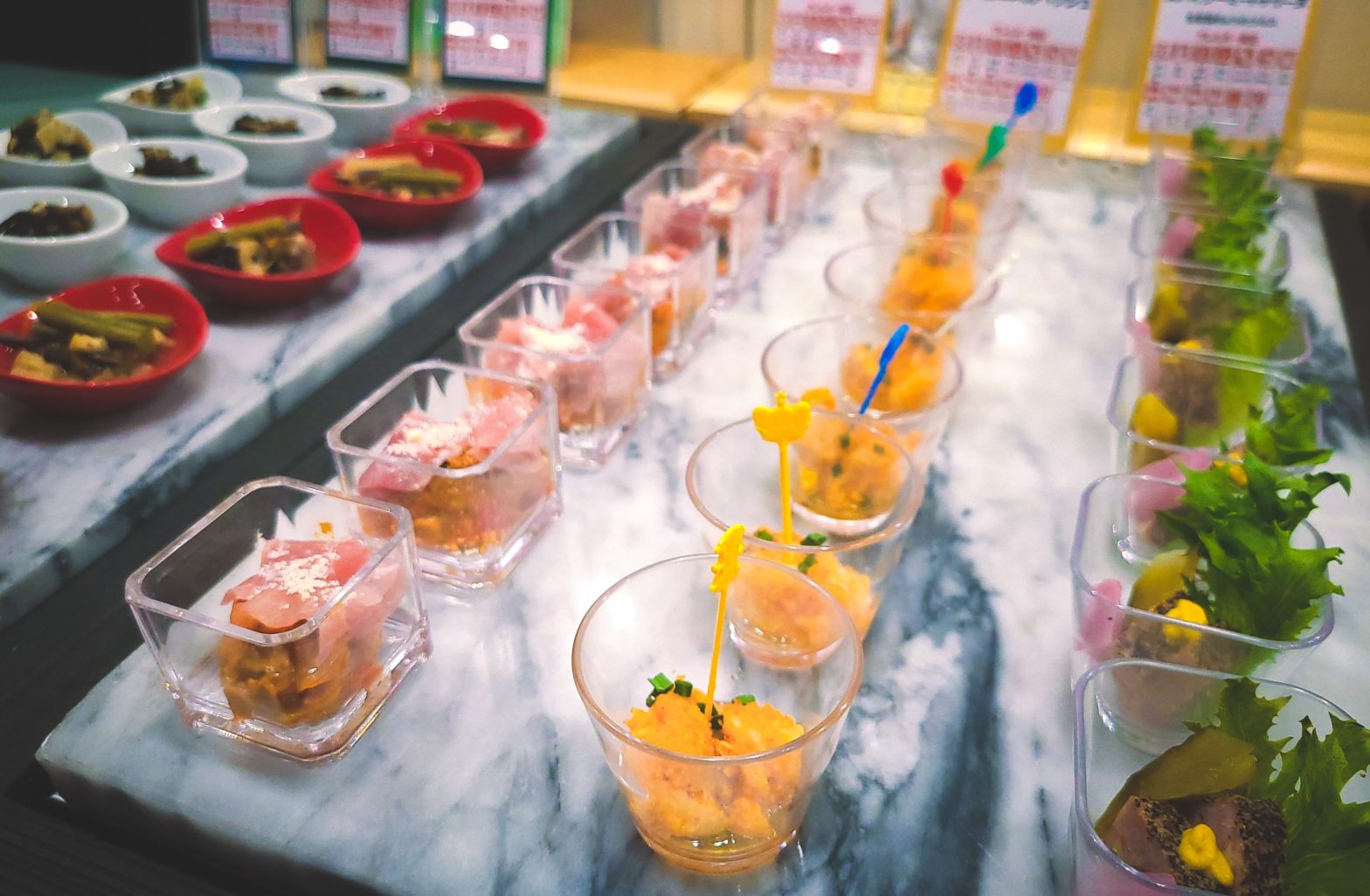Today’s visit takes me out to Fuchu, a suburban city located in Tokyo prefecture that is a quick a 25-minute train ride west from Shinjuku. Fuchu station is a place I am somewhat familiar with—I have a friend who lives in the area and I this is the station I use when I visit. The area surrounding Fuchu station is very urban, with many tall buildings, shopping centers, buses that travel in all directions, and plenty of foot traffic.
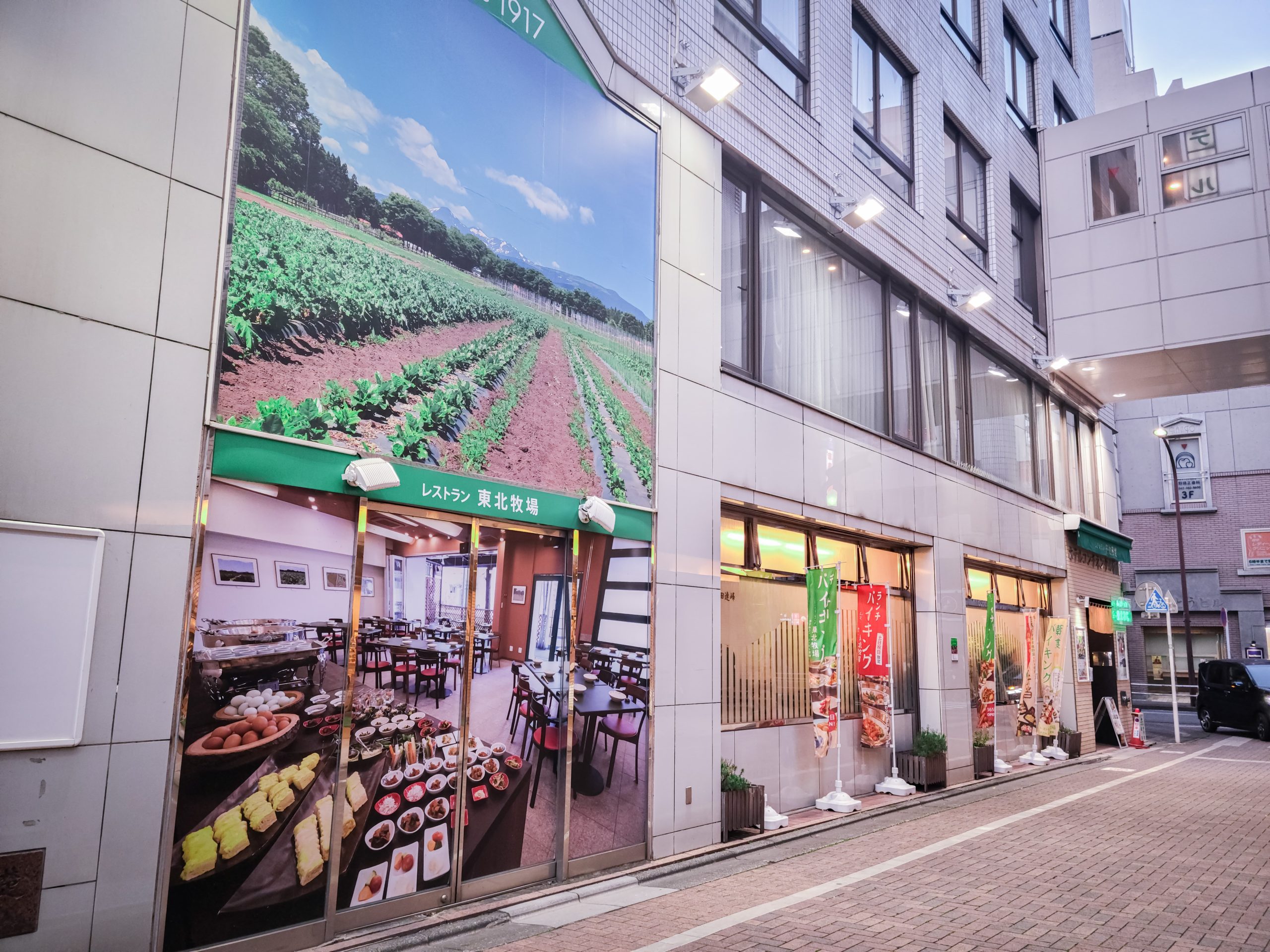
Hotel Continental Fuchu gets top marks for ease of access. It’s located right next to the station so it takes me only a couple minutes to get there. As I approach the doorway to the lobby, I notice that the side of the building to my left has a photo of a farm field that covers an entire floor.
Oikawa-san, who is in charge of hotel PR, greets me at the entrance. Food is a big theme for this hotel, and she tells me that the hotel has three restaurants: a western-style food café/bar, a Chinese restaurant, and across the street, an all-you-can-eat buffet that specializes in using the ingredients of a farm in Aomori where Japan’s northern area of Tohoku.
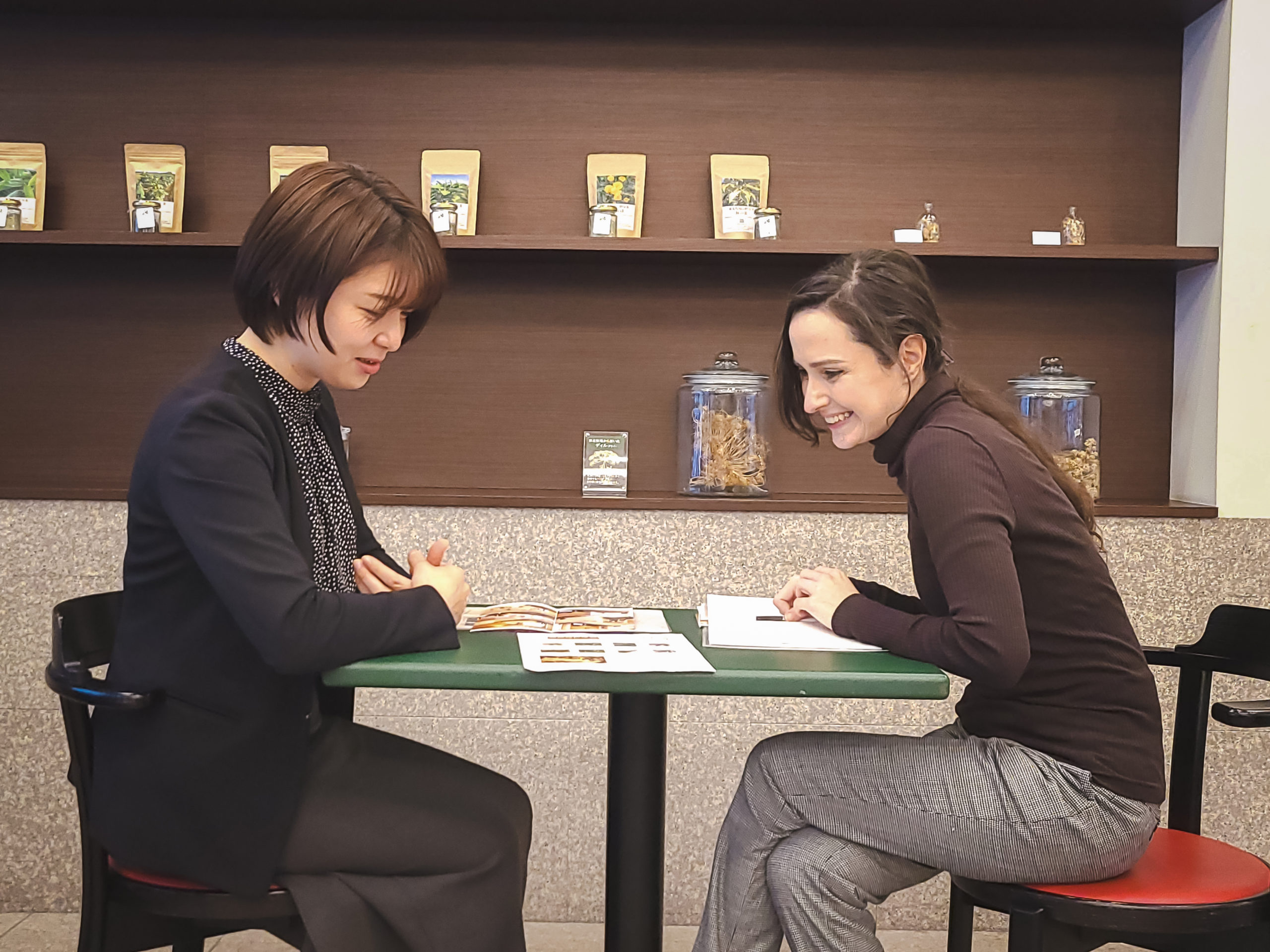
Out of the three, Restaurant Tohoku Bokujo (meaning “Tohoku Farm”) is the one that Oikawa-san seems to emphasize the most. If you look at the hotel’s website, you will immediately see photos of horses and farm fields, quite unexpected considering the outward appearance of the modern hotel building in the middle of a bustling city. As we take our seats at one of the tables in the restaurant, she wastes no time in telling me about this special place
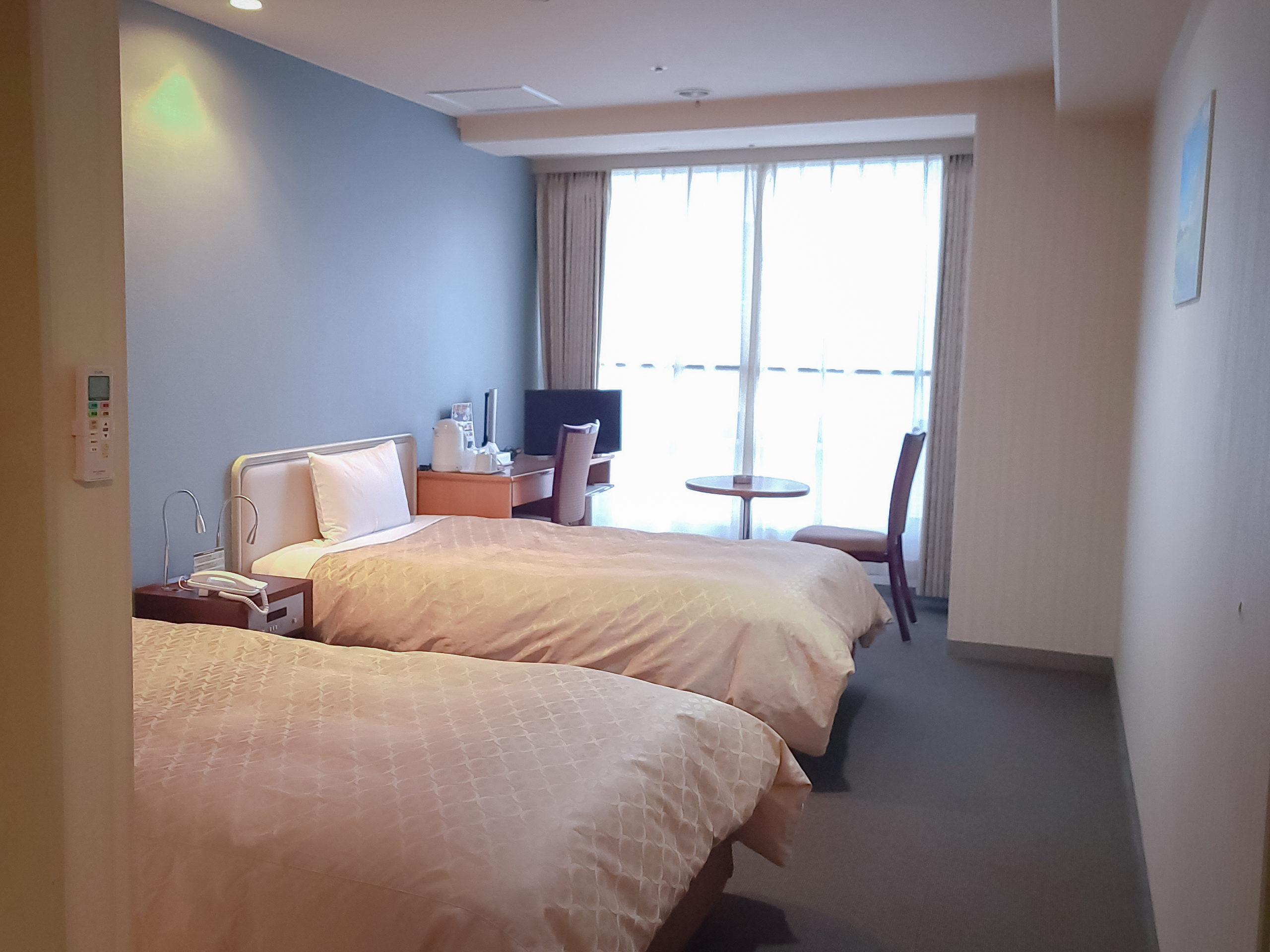
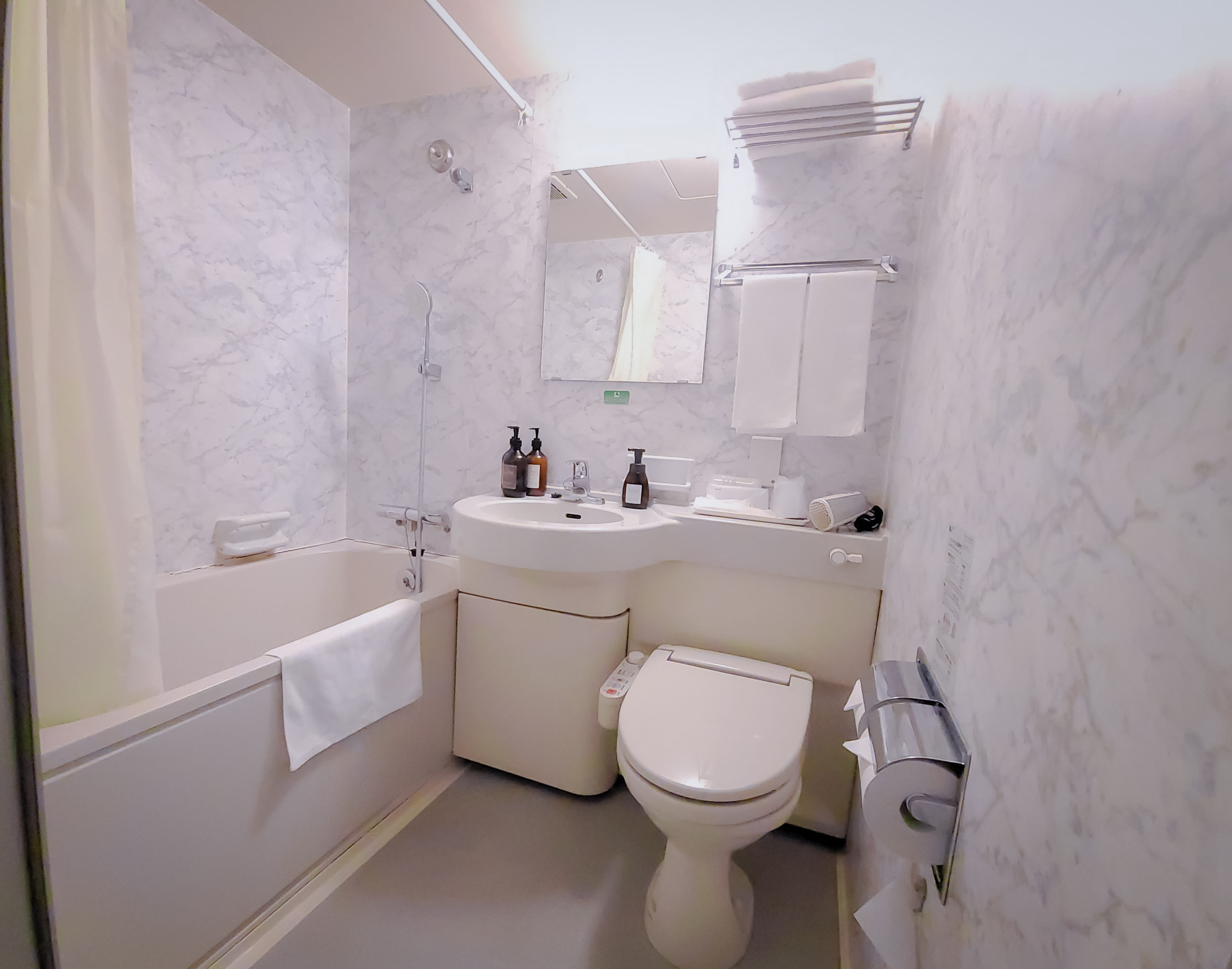
Hotel Continental Fuchu has been in operation for 35 years, and its story began with Mr. O (a nickname I have given for the purpose of this article), who owned both the hotel and a ranch named “Tohoku Bokujo”. Tohoku Bokujo, located in Aomori Prefecture, specializes in breeding, raising, and training thoroughbred horses (and still does to this day). Mr. O started cultivating vegetables using the manure of thoroughbred horses raised at Tohoku Bokujo and a portion of the 100-hectare land.
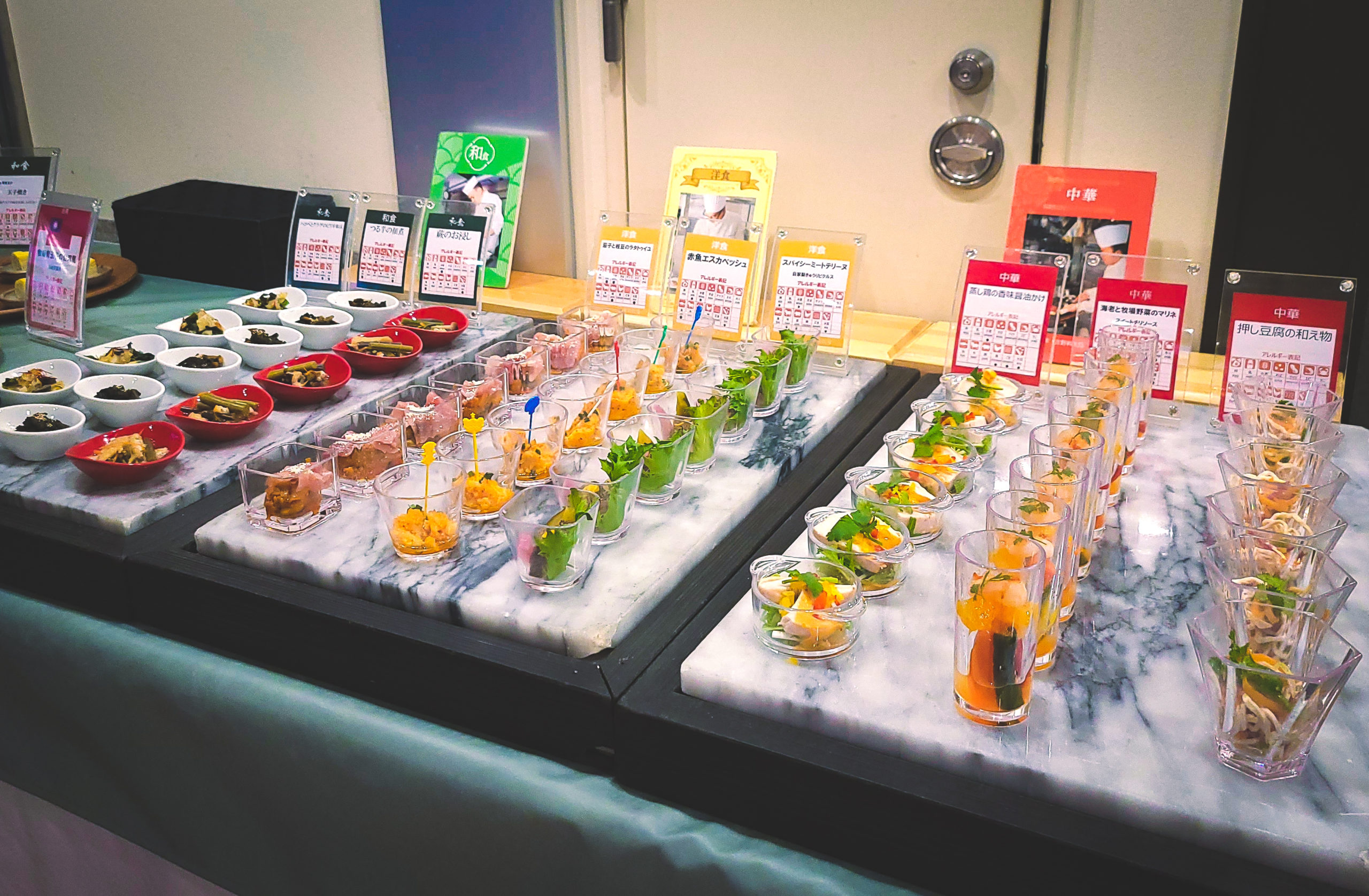
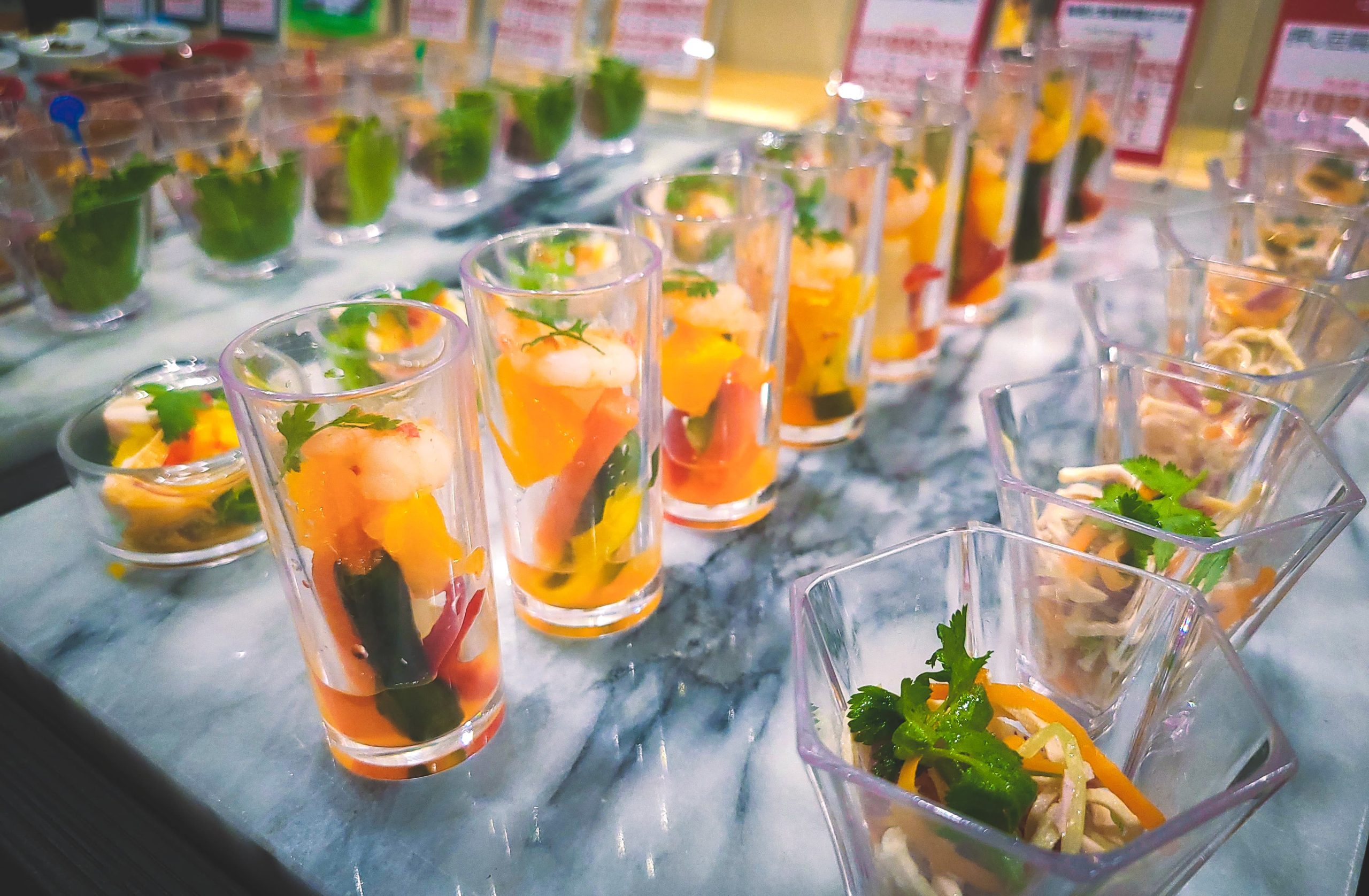
Since around 2000, Tohoku Bokujo has been supplying ingredients to the hotel, and now, most of the menus used in the Tohoku Bokujo restaurant feature vegetables and eggs produced at Tohoku Bokujo.
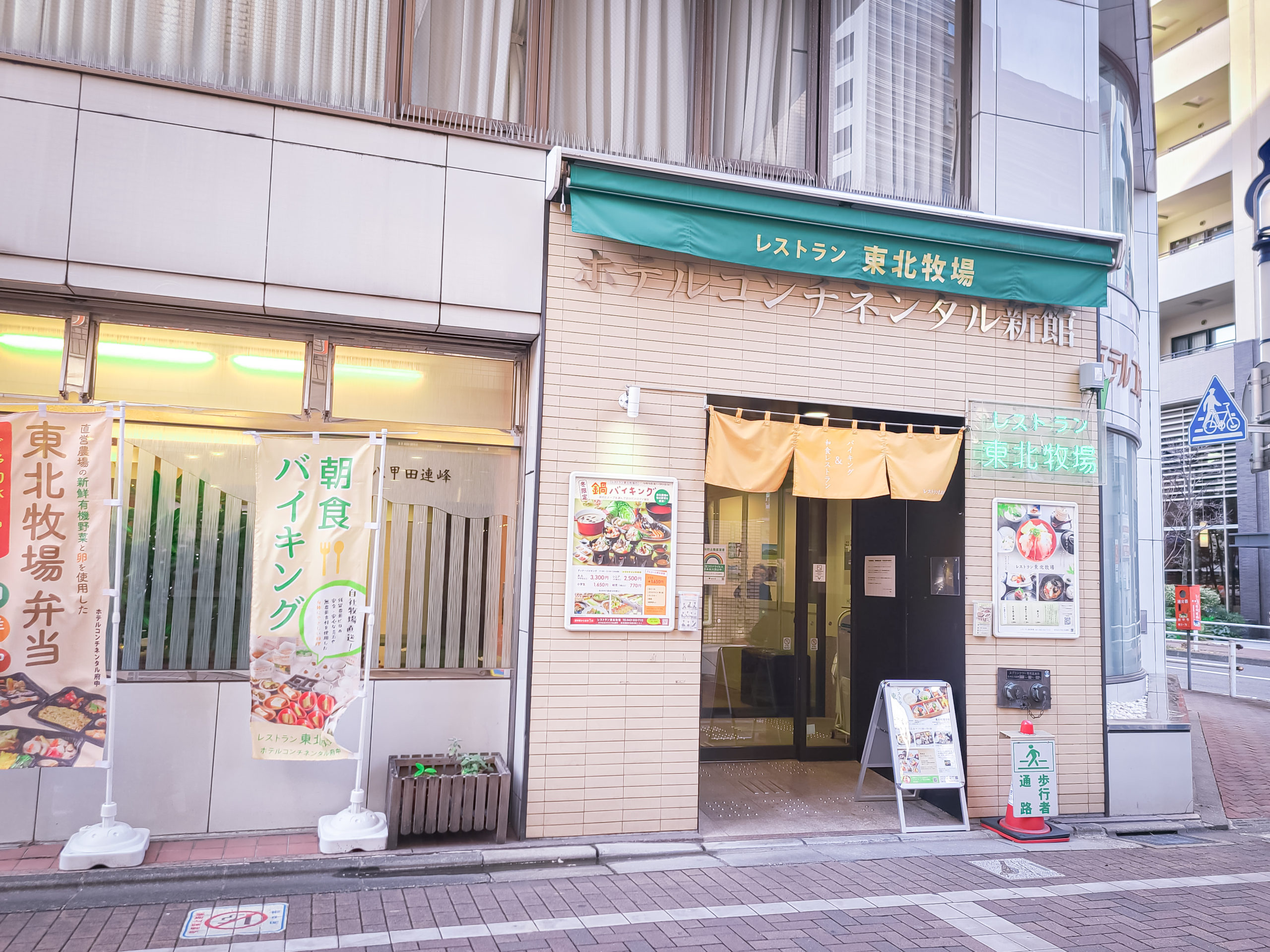
You might be thinking, what’s the big deal? There are a lot of organic farms out there. However, what makes this place stand out is not that it’s organic—a classification that allows limited use of pesticides—but rather that the farm uses zero pesticides. None at all. Not a trace. To do this on a large enough level as to support the twice-a-week shipment of vegetables and eggs from the farm to the hotel is quite the feat. Oikawa-san tells me that it took many years of research and development to implement natural non-pesticide methods of keeping bugs away from the produce, and then to grow enough to support a restaurant that could feed all the hotel guests as well as any passersby who came in for a meal. Another luxury of the hotel having its own no-pesticide farm means that the eggs used at the restaurant come from Tohoku Bokujo’s chickens who have also been fed a pesticide-free corn diet. The chickens are able to get ample exercise in their free-roam paddock as well.
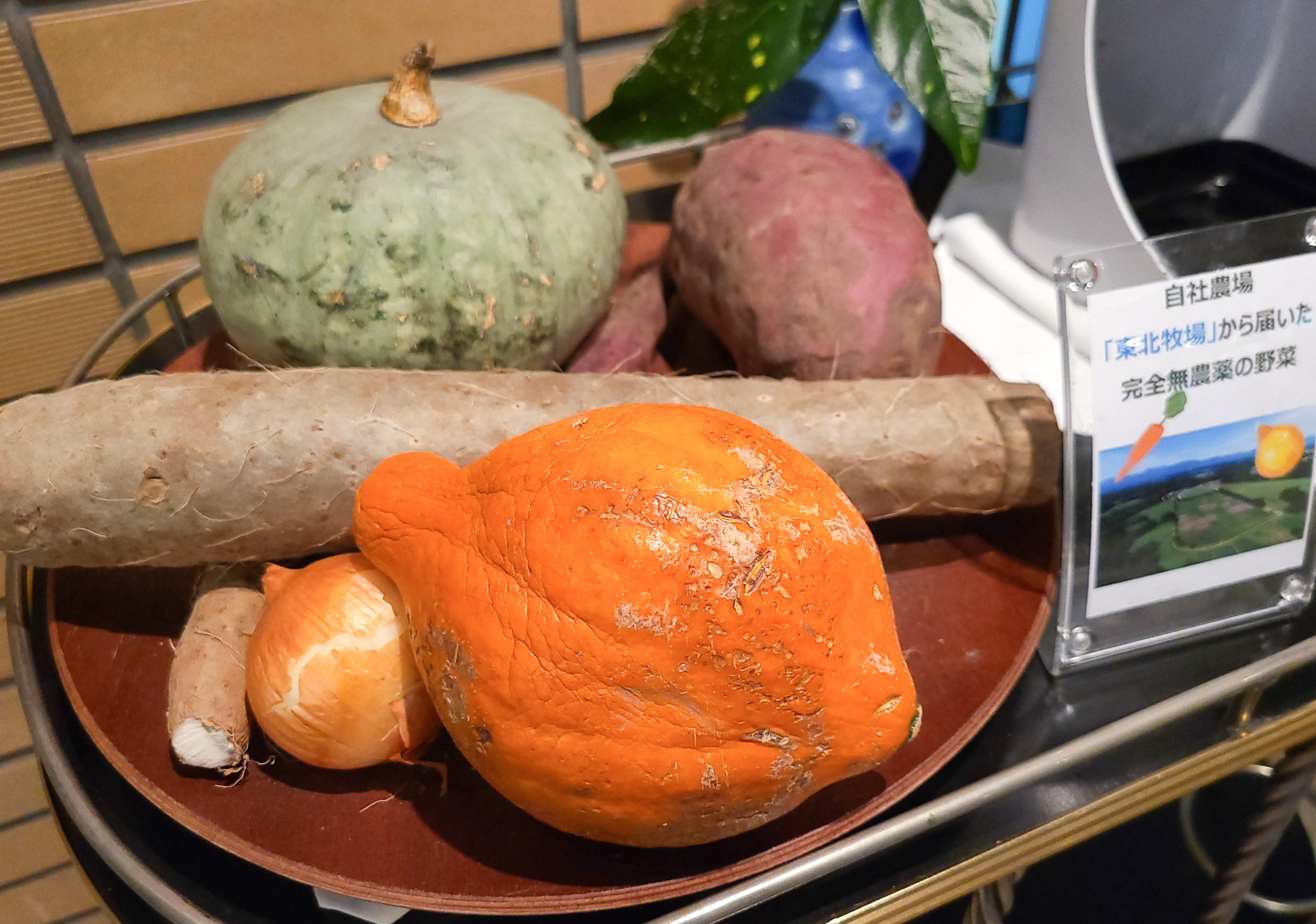
What prompted Mister O to build such a facility? His relative was a rice merchant and he grew up eating rice and vegetables before pesticides were a common practice. Produce sold in supermarkets is required to be uniform-looking and has been selectively grown for its size, rather than its flavor, Oikawa-san continues. With the modern world’s push for productivity and quantity, opportunities to taste the beautiful flavor of fruits and vegetables as they were in Mister O’s childhood have become few and far in between.
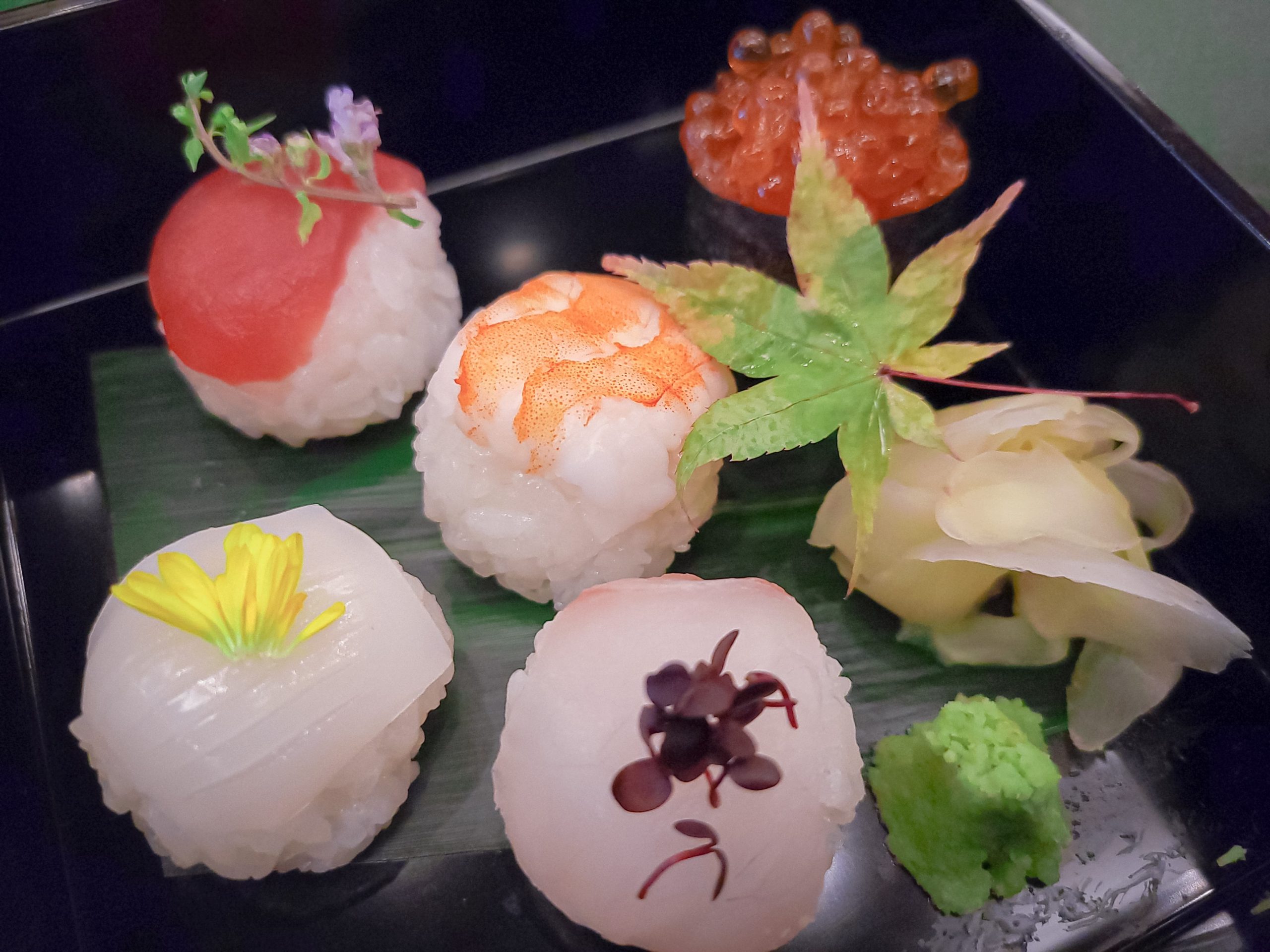
The simple shapes are now a nostalgic memory to most people who live in big cities. Though it’s on a very small scale, Mister O wanted to give people in the city a chance to experience that natural flavor. To ensure that guests can fully enjoy a variety of seasonal vegetables, he decided to make the restaurant all-you-can-eat.
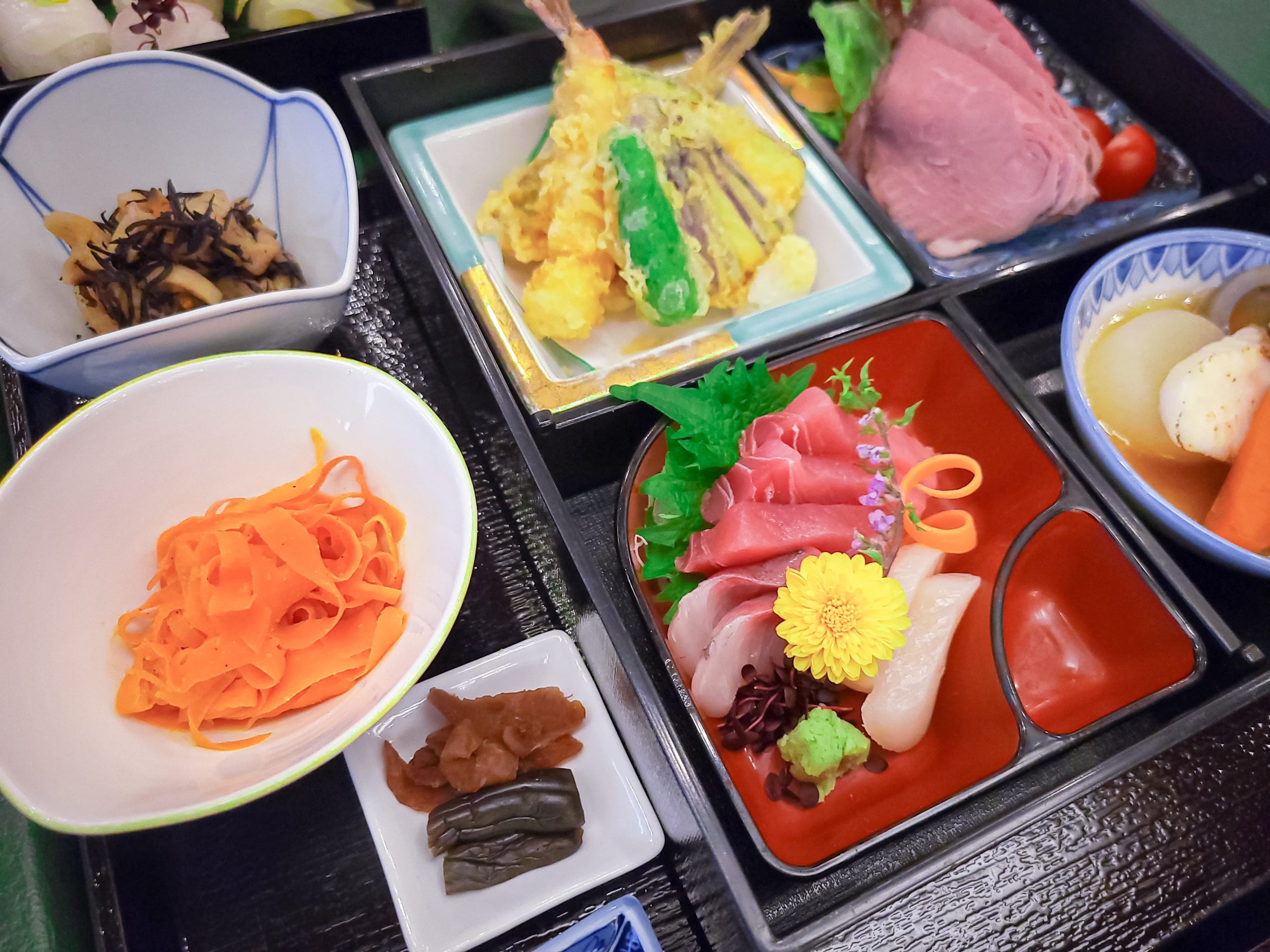
All this talk of delicious food has me feeling hungry, and as if reading my mind, Oikawa-san offers me a chance to try a few dishes. Without missing a beat, I accept her offer, and after some time one of the chefs brings out a tray with several dishes on it. The meal features sashimi, simmered vegetables, tempura, several pieces of round sushi, and a cup of yasou-cha—wild-grass tea made from various grasses and plants that are suitable for human consumption.
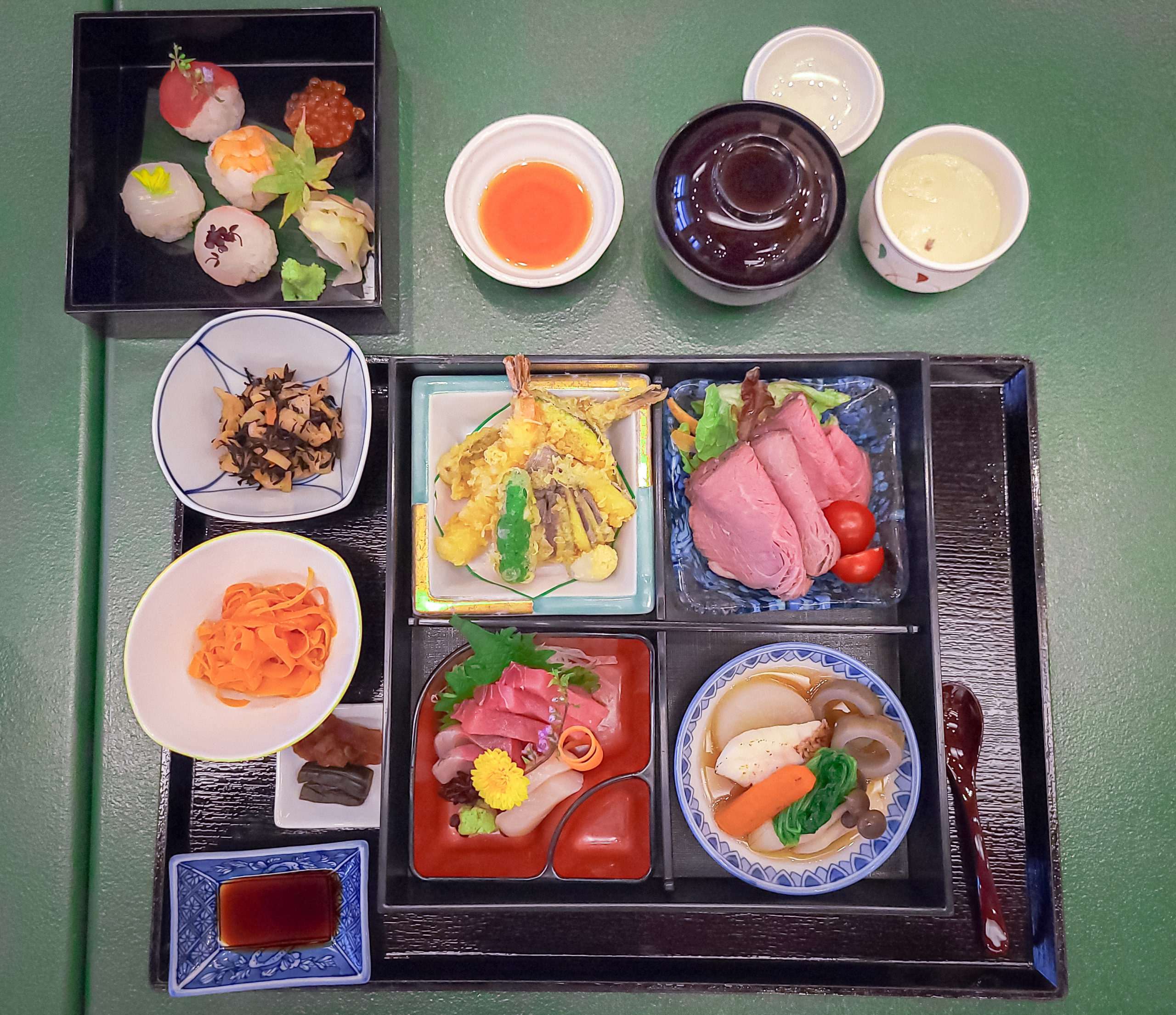
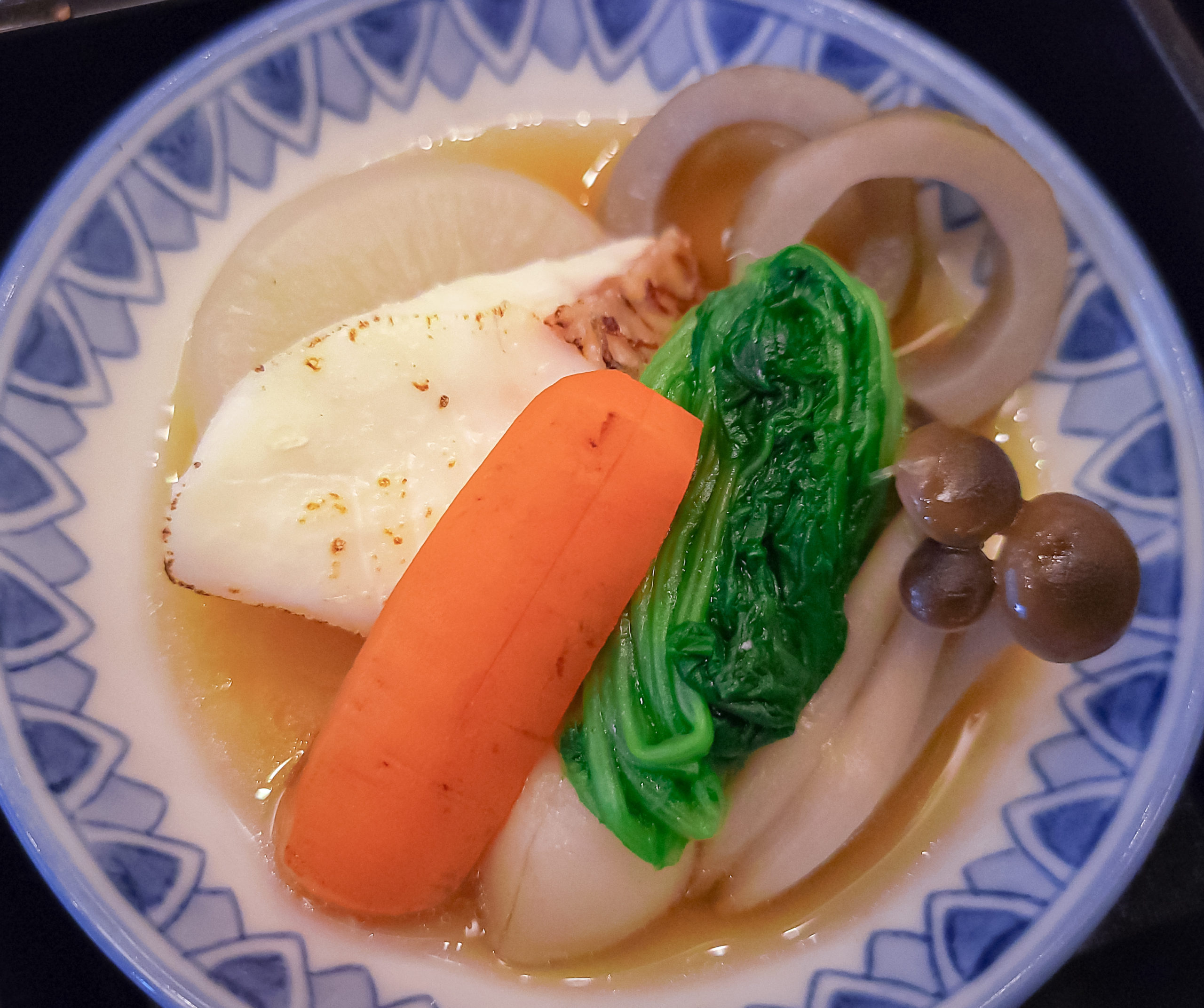
I take a bite of the thinly sliced strips of carrot, and am pleased to taste the natural sweet flavor. The seasoning used for each dish is mild, as not to interfere with the aroma and delicate taste of each vegetable. When the ingredients high quality, their untampered flavor is more than enough to satisfy one’s taste buds. While this hotel is quite large, its ability to meet the needs and requests of its guests: though the menu is not vegetarian, the menu can be slightly adjusted for food restrictions if asked for in advance.
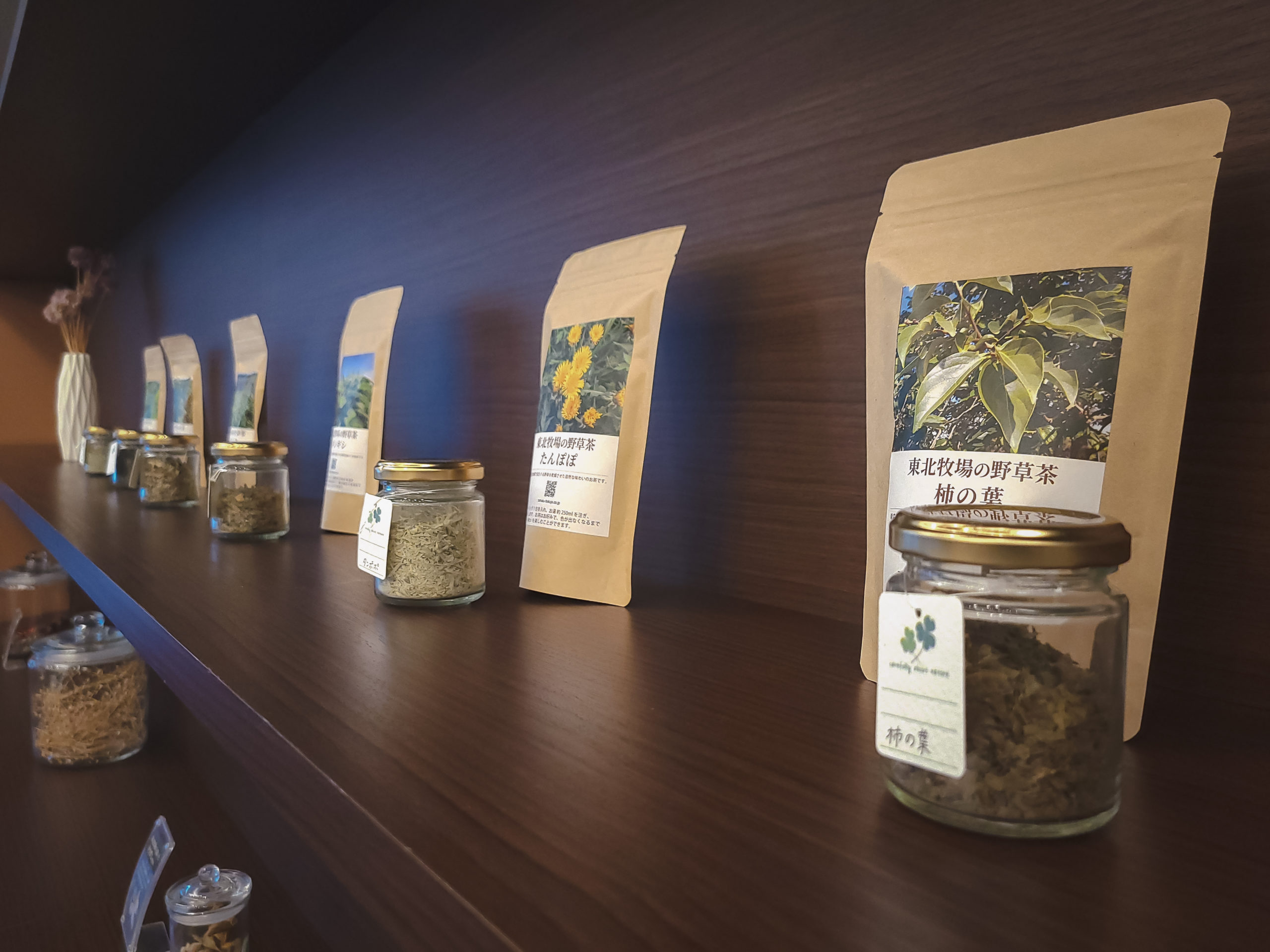
Various goods produced from the farm produce are available for sale as well, including Japanese leek dressing and of course the various types of yasou-cha. It is also possible to order food for takeout. I am so immersed in talk of the Tohoku Bokujo farm that I almost forget I’m here to interview a hotel.
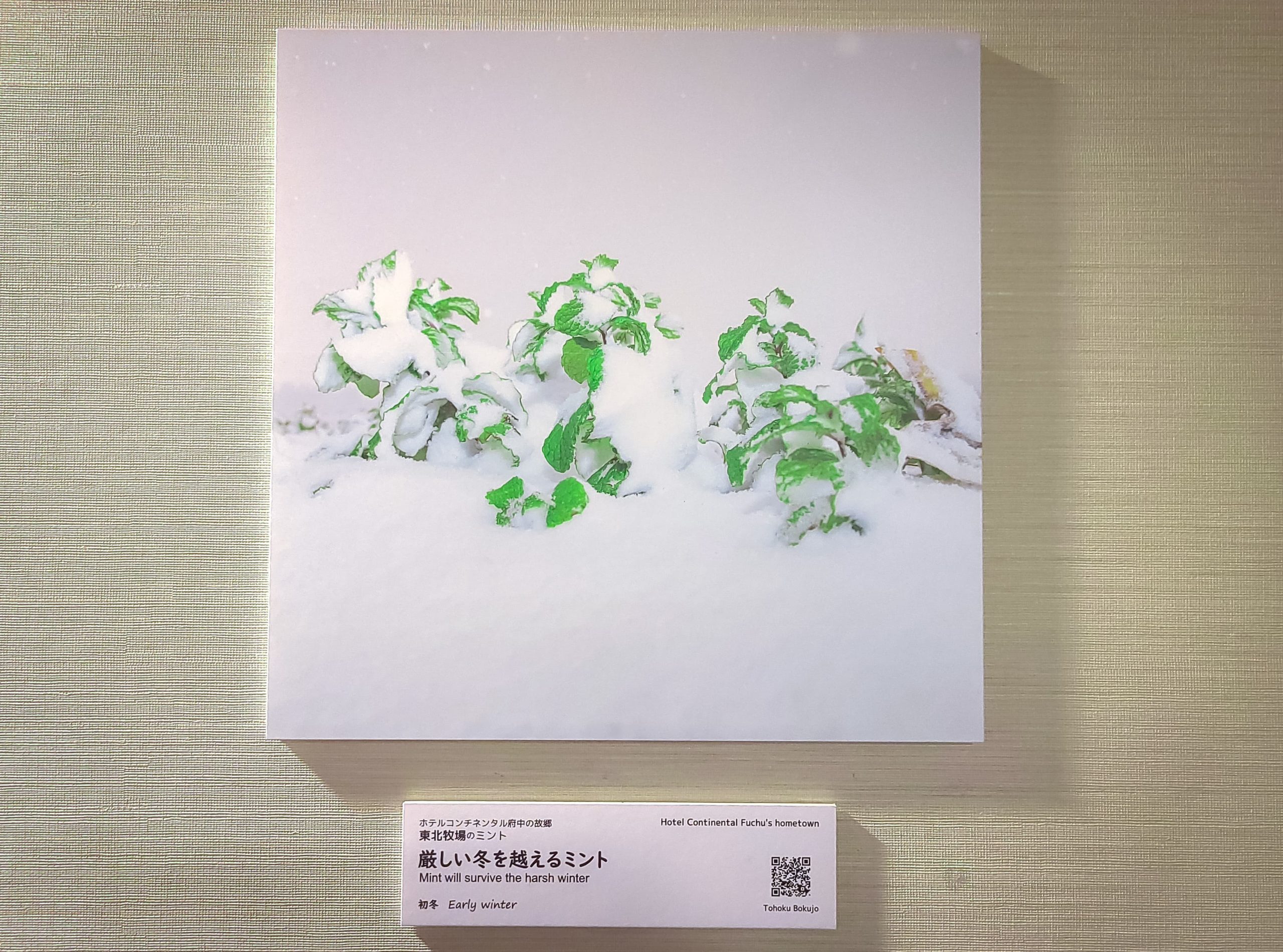
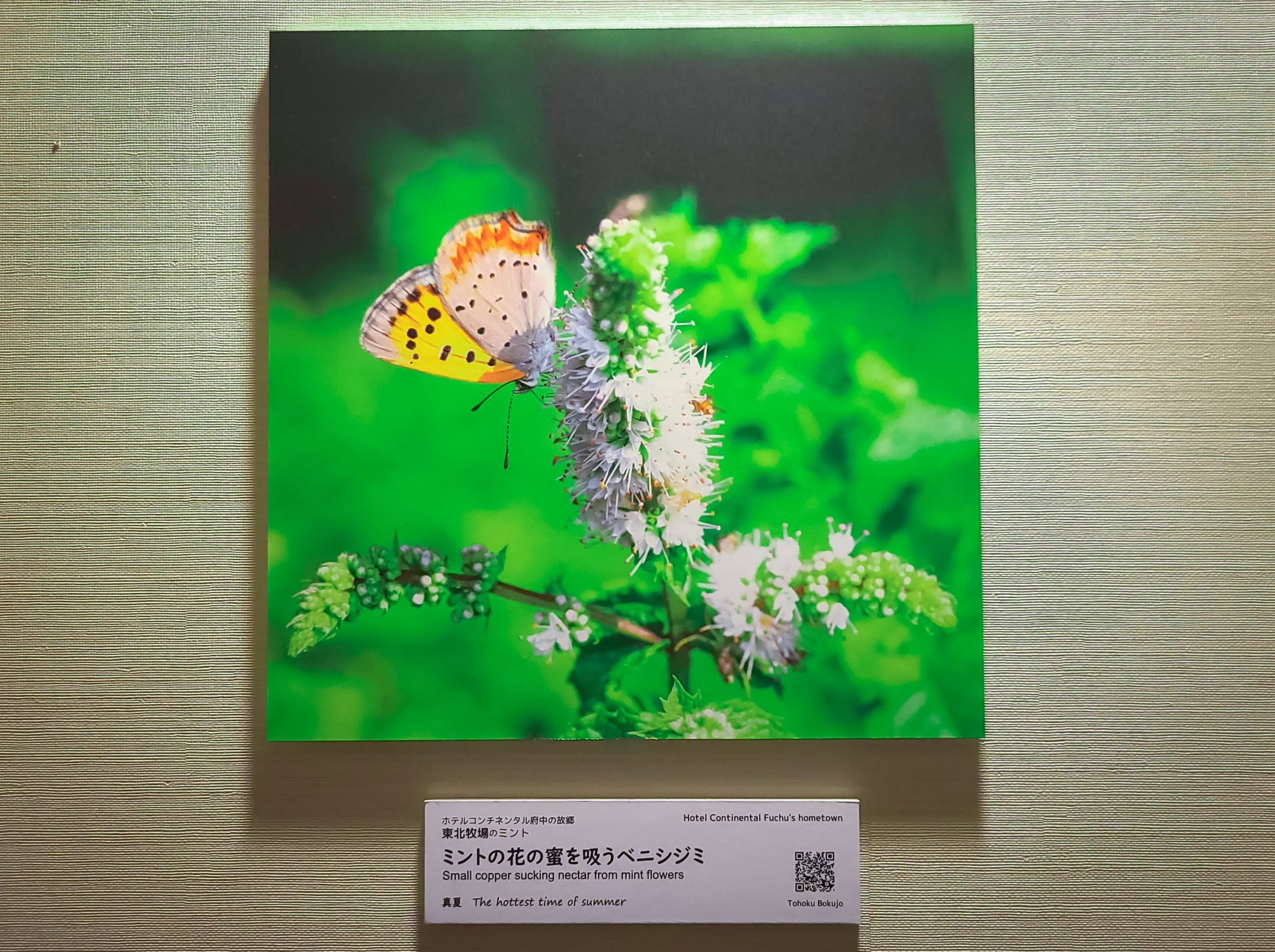
As Oikawa-san takes me through the various floors and rooms of the hotel, I notice that the walls feature photos taken at the farm throughout various times of the year.
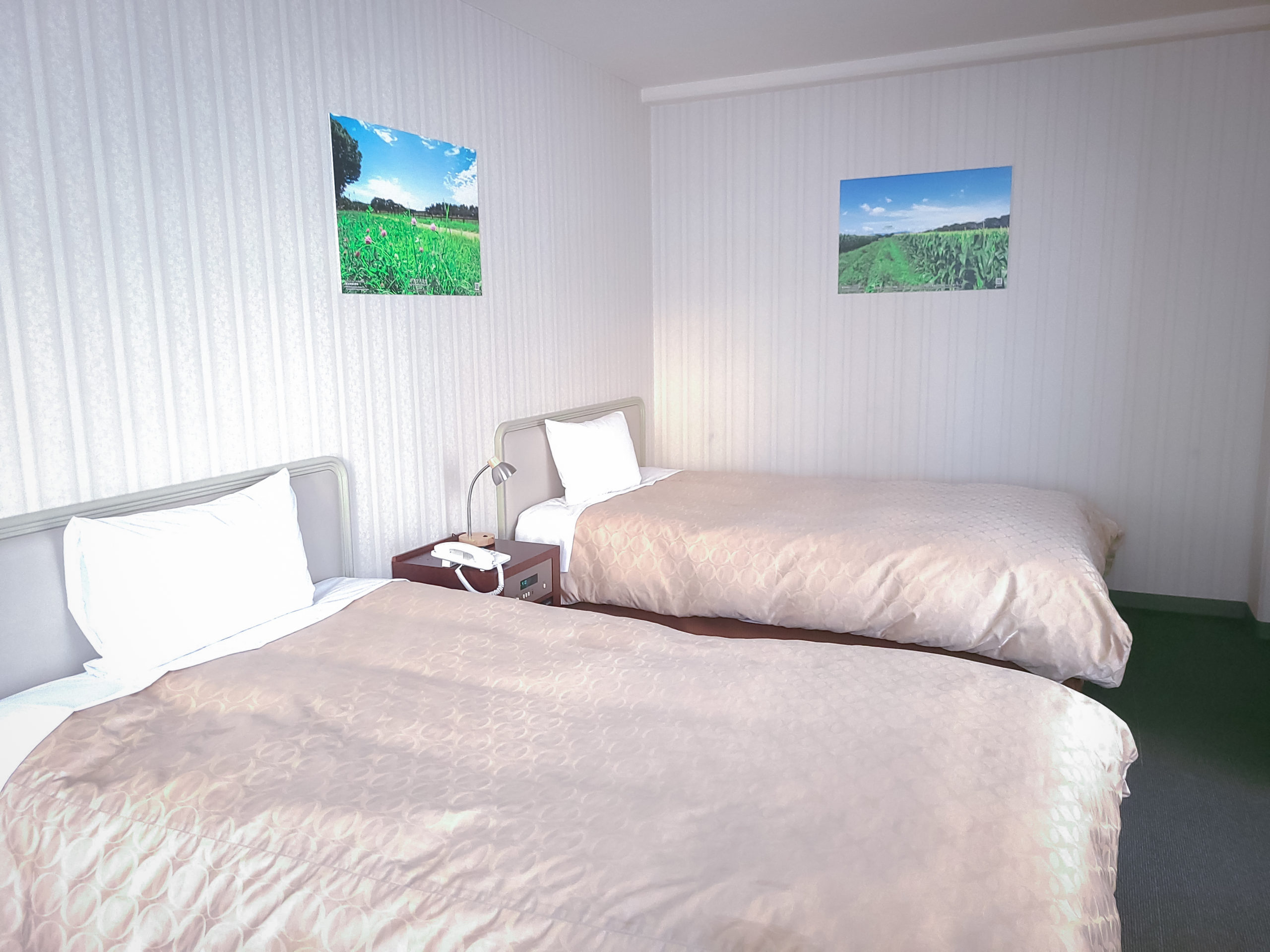
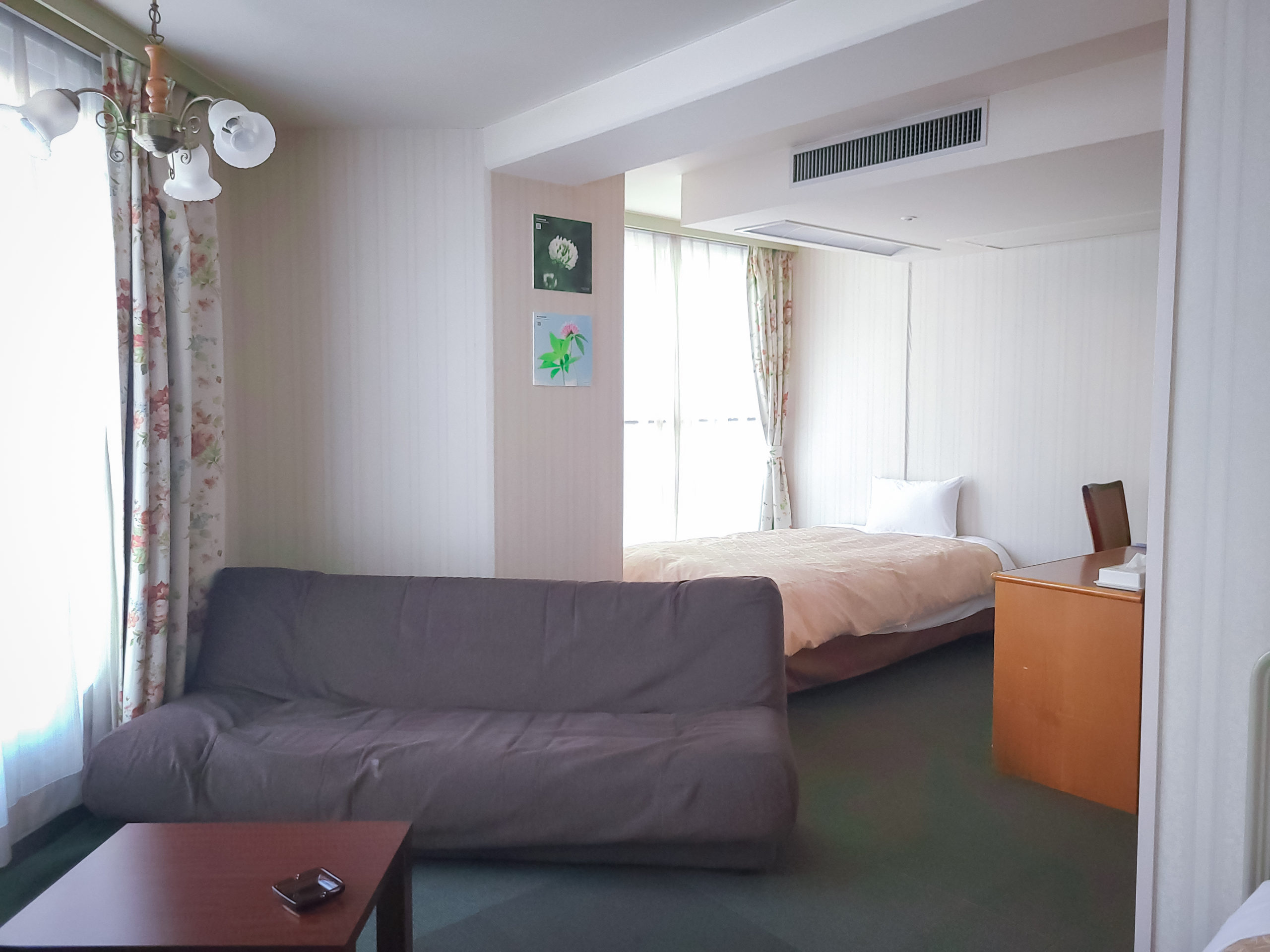
Hotel Continental Fuchu is comprised of two buildings, the main building and the new annex. Both go up to the 7th floor and feature a total of 117 rooms. One of this hotel’s perks is its variety of room types, the biggest of which is a Superior Triple Room with four beds.
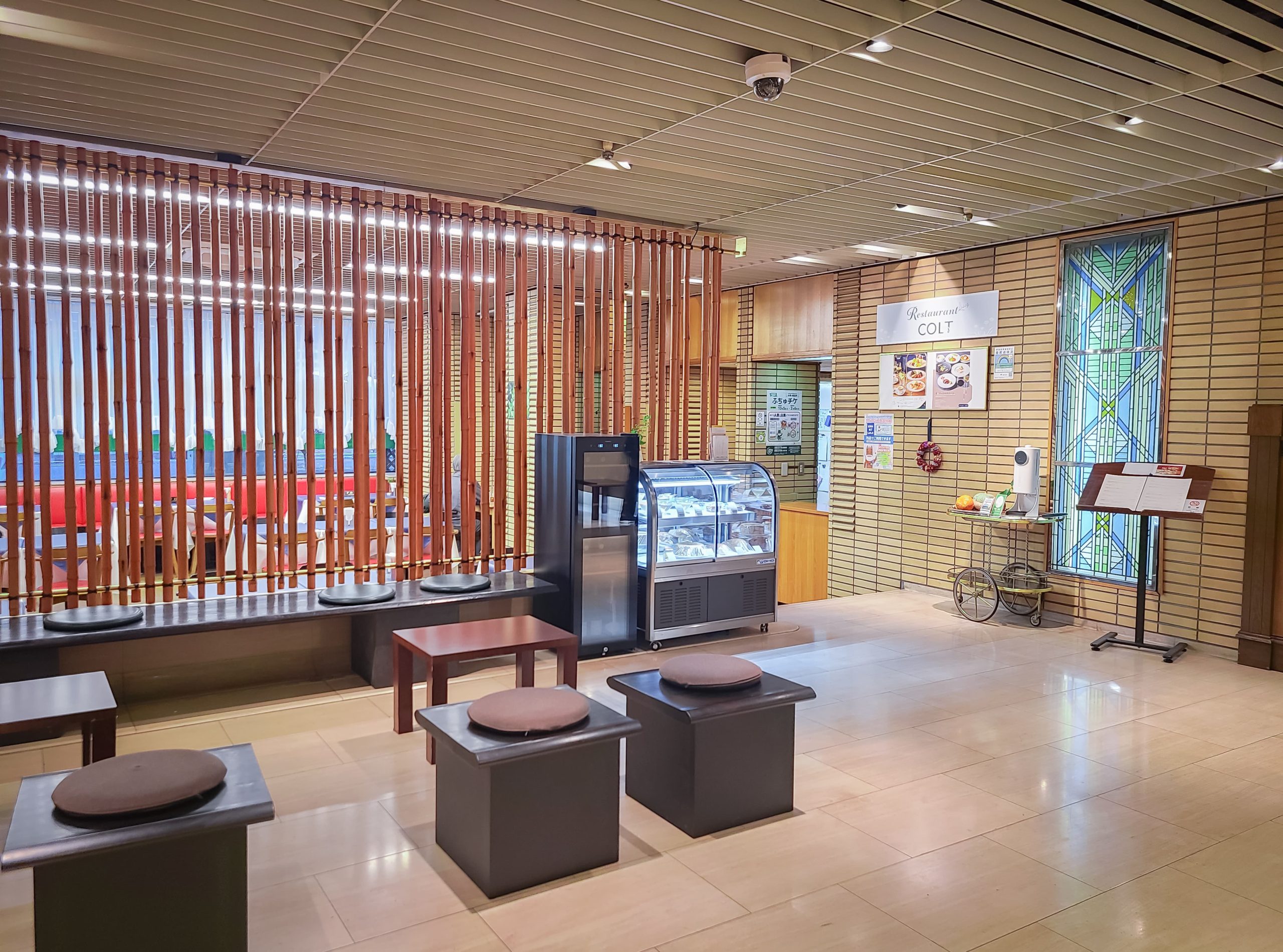
While Restaurant Tohoku Bokujo specializes in the farm-to-table experience, the two other restaurants in the hotel also use many ingredients sourced from the farm. Restaurant Colt, the café/bar next to the lobby, offers various deserts made from farm-fresh ingredients, and even features options such as the reasonably-priced afternoon tea and various seasonal courses. These are of course available for hotel guests and non-guests alike.
Though the Fuchu area is not a well-known tourist destination, it does get its share of visitors during the Kurayami Matsuri in May. If you are a night-owl, Kurayami Matsuri might be worth putting on your list of plans when you visit. Meaning “darkness festival” in English, it is aptly named seeing as the omikoshi procession begins at midnight.
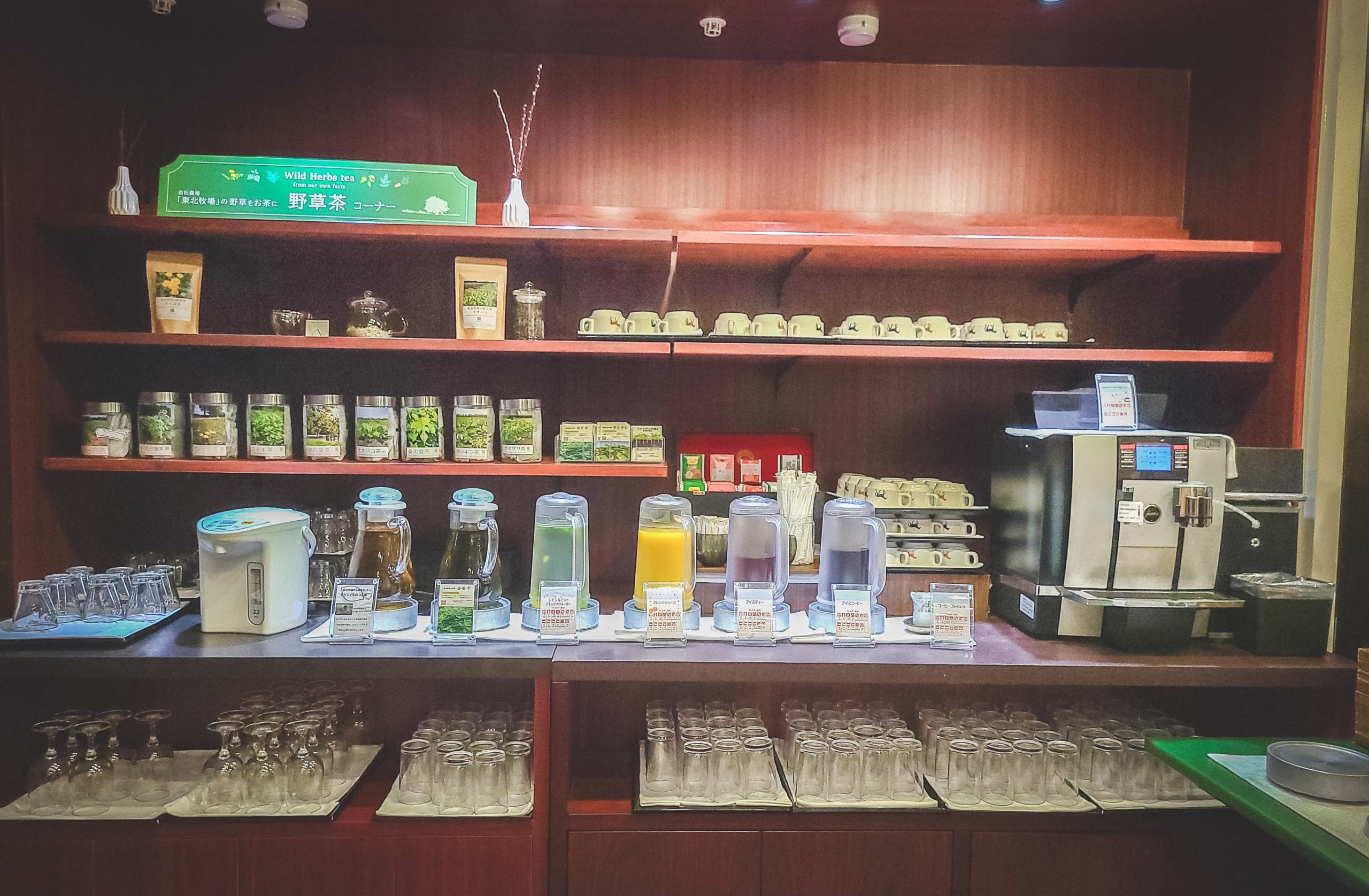
While I’m not sure if I’ll have the energy for an all-nighter to take part in May’s festivities, I do know I will be making a trip back here very soon. Perhaps with my friend who lives nearby? Before heading out, I make a quick stop to get some souvenirs to take home for myself: a few types of yasou-cha and some rakyou leek dressing. Hotel Continental Fuchu: come for the food, stay for the food, and take some home with you when you go.
